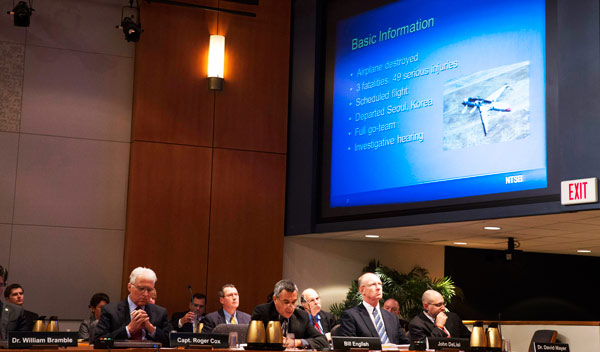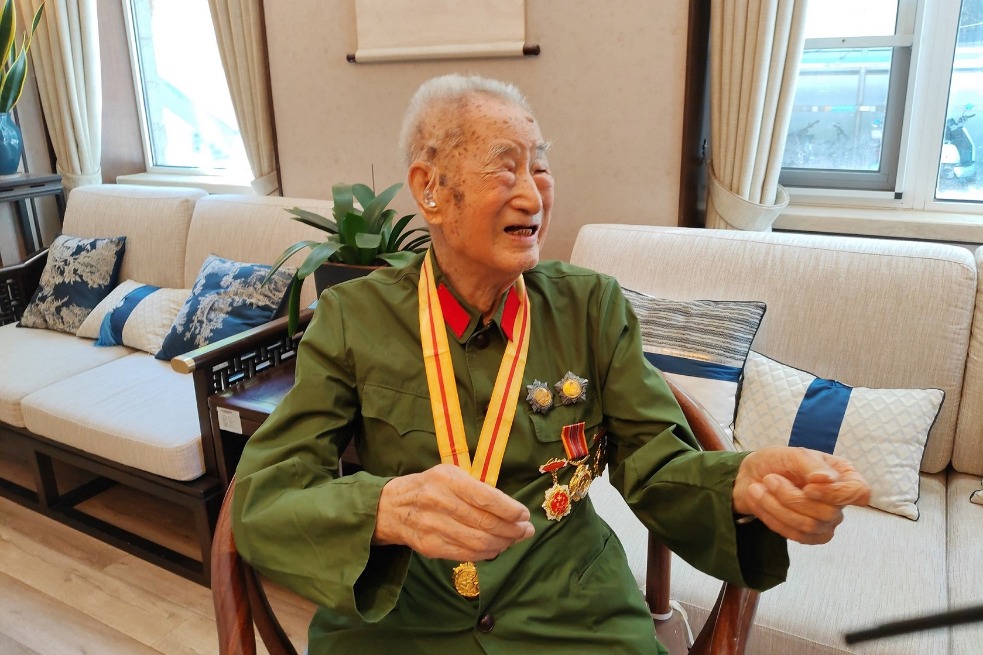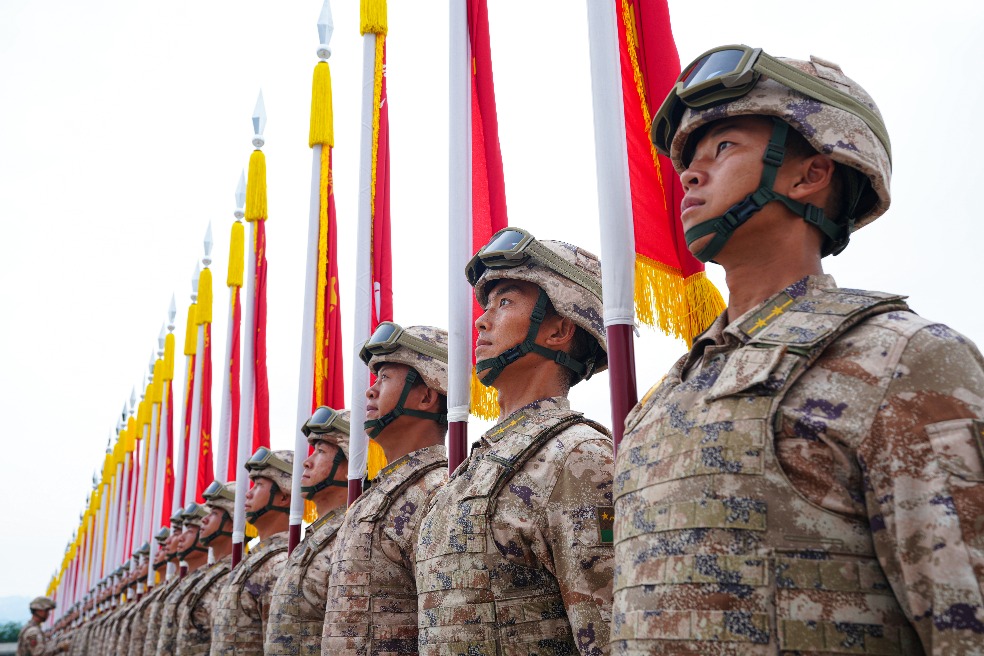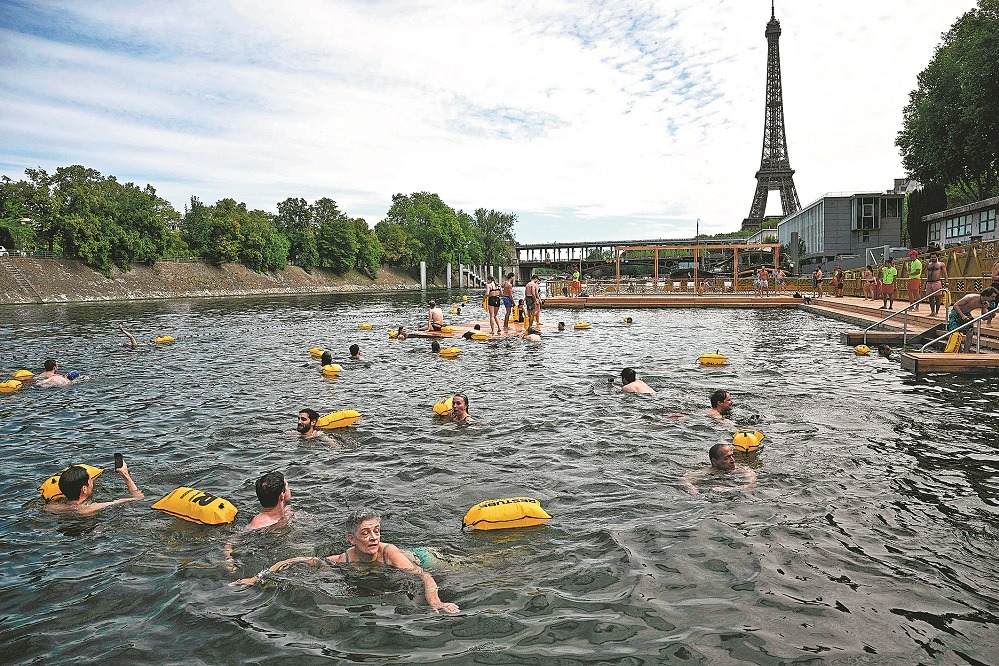NTSB blames Asiana crew for crash that killed three

|

National Transportation Safety Board (NTSB) investigators highlight a slide showing the basic information of the Asiana Flight 214 airline crash in San Francisco and make safety recommendations on Tuesday during an NTSB hearing in Washington. [Photo / Agencies]
|
The crash of Asiana Airlines Flight 214 at San Francisco International Airport a year ago that killed three Chinese girls was caused by inadequate pilot monitoring of airspeed and the flight crew's mismanagement of its landing approach, the US National Transportation Safety Board (NTSB) said on Tuesday.
The Asiana flight crew relied too much on systems "they did not understand" and incorrectly maneuvered the aircraft, according to the NTSB. Complexities of the auto-throttle and autopilot flight director systems and the crew's misunderstanding of the systems contributed to the crash as well, the board said at a public hearing in Washington.
The Asiana Boeing 777 en route from Seoul struck a sea wall and slammed into the runway while attempting to land on July 6. The crash injured 187 of the 307 people on board, 141 of who were Chinese.
Christopher Hart, acting chairman of the NTSB, said in opening remarks that a lack of understanding of complicated aviation systems led the flight crew to fly the plane "too low and too slow and collided with the seawall at the end of the runway".
While automation has made aviation safer, Hart said, "the more complex automation becomes, the more challenging it is to ensure that the pilots adequately understand it".
It was the first fatal commercial airliner crash in the US in four and a half years. Of the 307 passengers on board, 141 were Chinese. The crash injured 187 passengers.
NTSB member Robert Sumwalt said that he did not believe the pilot errors were because of incompetency, but rather that there was "an expectation that the autopilot auto-throttle system would do something for them that the airplane was not designed to do".
A plane's auto-throttle allows a pilot to control an aircraft's settings to preset speeds, instead of a pilot having to manually control fuel flow. Documents released by the NTSB in December show that the captain had set throttles he didn't understand to idle, inadvertently disabling a speed-control system, according to Bloomberg News.
The board said that confusion between the pilot and an instructor aboard the aircraft about who was responsible for "initiating the go-around" led to the accident as well, an issue where some pilots are hesitant to abort a landing when things go awry, an issue that has long concerned aviation officials, the Associated Press reported. The captain, Lee Kang-kook, was a veteran pilot but was new to the 777, and Lee Jeong-min was the instructor sitting in the co-pilot's seat.
Bill Bramble, NTSB's human performance investigator, said that fatigue was also a contributing factor to the crash, citing "sleep restriction'' for the pilots as well as a disruption to sleeping patterns due to the fact that the flight was landing at 3:30 am Korea time.
Seoul-based Asiana had acknowledged that the crew failed to maintain the aircraft's speed and that it did not abort the landing when the crew knew the aircraft was experiencing trouble. Boeing, the plane's manufacturer, has said that the incident was not caused by aircraft failure, stating in a submission to the board that the plane and its systems "were functioning as expected prior to impact and did not contribute to the accident".
The four-member panel of the board voted 4-0, agreeing to the findings of the causes of the incident.
"The NTSB findings point to a combination of the negligence of the pilots with the shortcomings in the auto-throttle system on the Boeing aircraft. Their failure to inform the flight crew and to otherwise warn them, in combination, caused the accident," said Brian Alexander, a lawyer from Kreindler and Kreindler LLP representing the families of the deceased Chinese girls as well as other injured parties from the crash.
Alexander said that the NTSB's factual findings are "significant and potentially admissible in the court of law".
Today's Top News
- Strong Kazakh-Sino ties key to successful cooperation
- East–West concert honors war's victims
- Qingdao-based area emerges as rising hub for regional growth
- Port city ramping up educational resources
- Leadership highlights ethnic unity
- Xi stresses persistent efforts to improve Party conduct






























